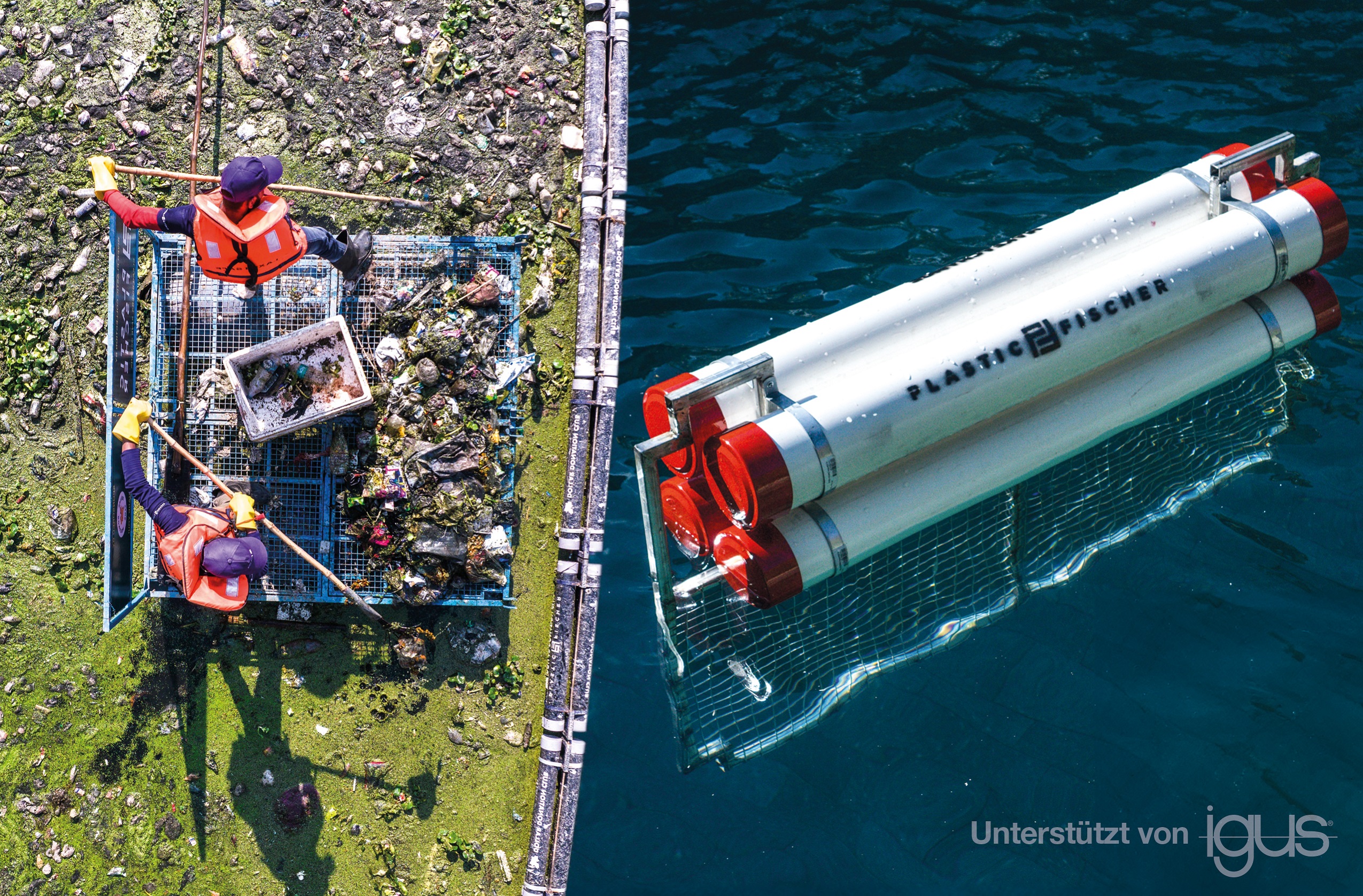3 minute read • published in partnership with igus
igus supports Plastic Fischer’s river cleaning initiative and finances the collection of plastic waste in India
Every year, millions of tonnes of plastic end up in the oceans – the OECD Global Plastics Outlook estimates 1.7 million tonnes annually. Most of this plastic enters seas and oceans via around 1,600 rivers, destroying marine ecosystems and contributing to loss of biodiversity. To prevent this waste from spreading uncontrollably in the water and breaking down into microplastics, start-up company Plastic Fischer collects plastic waste from rivers in India and Indonesia – and is being supported in this by plastics specialist igus®, among others.
Plastic Fischer has already collected and processed over 1,600 tonnes of plastic waste since it launched in 2021. Since then, the start-up has created 42 “impact locations” and 79 jobs for local people in India and Indonesia. Motion plastics specialist igus has financially supported the initiative, setting themselves the goal of advancing the circular economy for plastics. With the support of igus, 33.6 tonnes of plastic has been removed from rivers so far.
The city of Kanpur is the main commercial and industrial centre in the state of Uttar Pradesh and is located on the Ganges, the second longest river in India. Due to the large number of industrial plants in Kanpur, which are inadequately monitored and have unregulated emissions, the Ganges is also one of the most polluted rivers in the world.

Picture: igus
Simple, cost-effective waste traps made locally
Working in Kanpur since August 2022, Plastic Fischer prevents plastic from entering the Ganges river and moving into the Indian Ocean. The non-profit organisation has 15 full-time employees running the operation. To catch the plastic and other waste, Plastic Fischer developed “TrashBooms”, floating barriers that prevent the material from flowing downstream. These are a technically simple and cost-effective solution built from locally available materials that enables fast repair and high scalability. Every day, these traps are emptied, and the plastic is taken to a sorting plant, where it is dried, separated and further processed. “We sell all recyclable materials to local recyclers,” explains Karsten Hirsch, CEO and co-founder of Plastic Fischer. “Since most high-quality plastics such as PET bottles are already collected from the informal waste sector, only five per cent of our non-organic material can actually be recycled. All non-recyclable materials such as plastic bags are incinerated and used as an alternative energy source in cement plants, to replace coal.”
United against plastic waste
Plastic Fischer in Kanpur and Varanasi, another town on the Ganges, is certified under the Ocean Bound Plastic Standard, one of only two independent verification standards in the plastic credit sector worldwide.
“We expect to open at least four new locations in India in the coming year and are always looking for ways to improve,” emphasises Karsten Hirsch. “For example, our TrashBooms are no longer made from PVC pipes, but from LPDE made from plastic bags, which allows us to recycle parts of the river plastic into TrashBooms. We hope that many more companies will follow igus’ example and support us.”
Matthew Aldridge, managing director of igus UK, said: “igus is always looking for new ways to promote the sustainable use of plastics. In addition to our own initiatives – such as our chainge recycling platform or the RCYL bike made from recycled plastic – we also want to support innovative programmes from other companies. Plastic Fischer has shown how you can make a big difference even with simple, cost-effective solutions. On top of cleaning up rivers, it creates new jobs.”